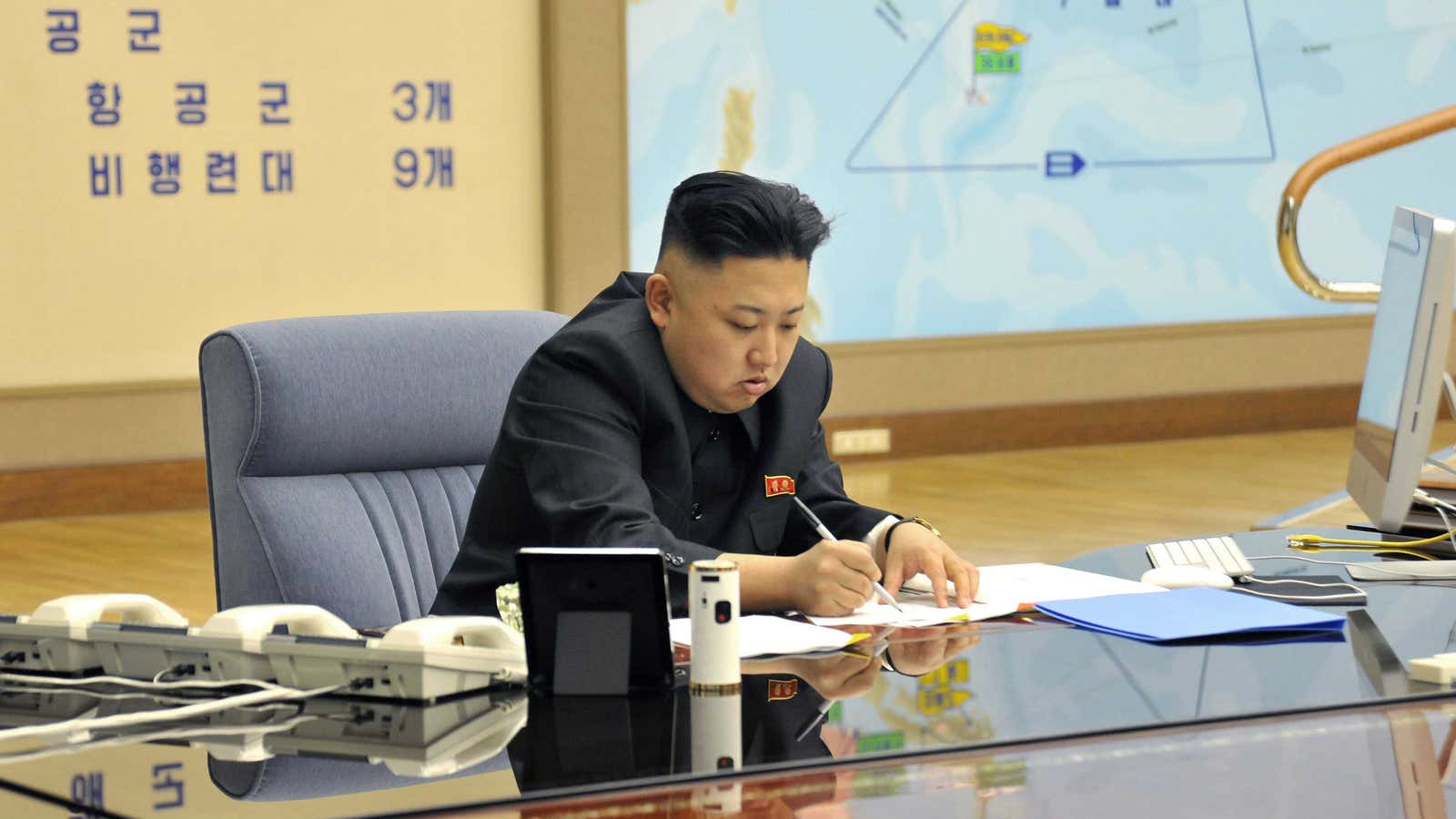In one of the many staged photographs of Kim Jong Un, the leader of North Korea appears seated at a desk beside what looks like an iMac computer.
Given the harsh sanctions placed against North Korea by the United Nations and individual countries, including the US, one might suspect the machine is actually a prop. But it could very well be the real thing.
Research firm Recorded Future analyzed “third-party data, IP geolocation, Shodan port scans, user agents, and open source intelligence” to determine the type of devices people in North Korea use to access the global web. The Kim regime severely restricts internet access for ordinary citizens, limiting the web to a carefully curated selection of sites.
Some government elites, however, can access the open web. As it turns out, they’re using gadgets popular in the outside world to do so, including ones you might be reading this on right now. The list of devices Recorded Future detected includes the:
● Samsung Galaxy S5
● Samsung Galaxy J5
● Samsung Galaxy S7
● Samsung Galaxy S8 Plus
● Huawei Mate 95c 6 v6
● Apple iPhone 4S
● Apple iPhone 5
● Apple iPhone 5S
● Apple iPhone 6
● Apple iPhone 6S Plus
● Apple iPhone 7 Plus
● Apple iPhone 8 Plus
● Apple iPhone X
● Apple MacBook
Recorded Future also detected the use of servers from IBM and Conexant, as well as Windows operating systems.
It’s not entirely clear how North Korea’s elite obtained these devices. High-end consumer electronics, according to Recorded Future, are considered luxury goods and fall under the US Department of Commerce’s export restrictions toward North Korea. However, the UN’s sanctions against North Korea leave individual countries leeway to determine for themselves what constitutes a luxury good—so it’s possible the products come from other countries, especially China, by far North Korea’s largest trading partner.
Meanwhile, data from the commerce department reveals that the US has legally exported $483,543 worth of computers and electronics to North Korea since 2002, with just under half of that sum shipping in 2014. While it’s not clear if that money went to purchasing the latest Apple and Samsung devices, the researchers estimate that North Korea could have purchased 350 computers legally from the US in 2014, given average costs at the time. The commerce department did not immediately reply to Quartz’s request for comment.
Despite its backward economy, North Korea has emerged as a cyber power to be reckoned with. Hackers from the country have stolen an estimated $650 million since 2011, largely through cryptocurrency heists. A significant number of the individuals conducting cyberattacks are thought to be located overseas.
A fondness for Apple products among North Korean elites wouldn’t come as a complete surprise. In 2015, researchers from Germany took a look at Red Star, the country’s homegrown operating system, only to find that the design closely resembled the Mac’s OS X.
